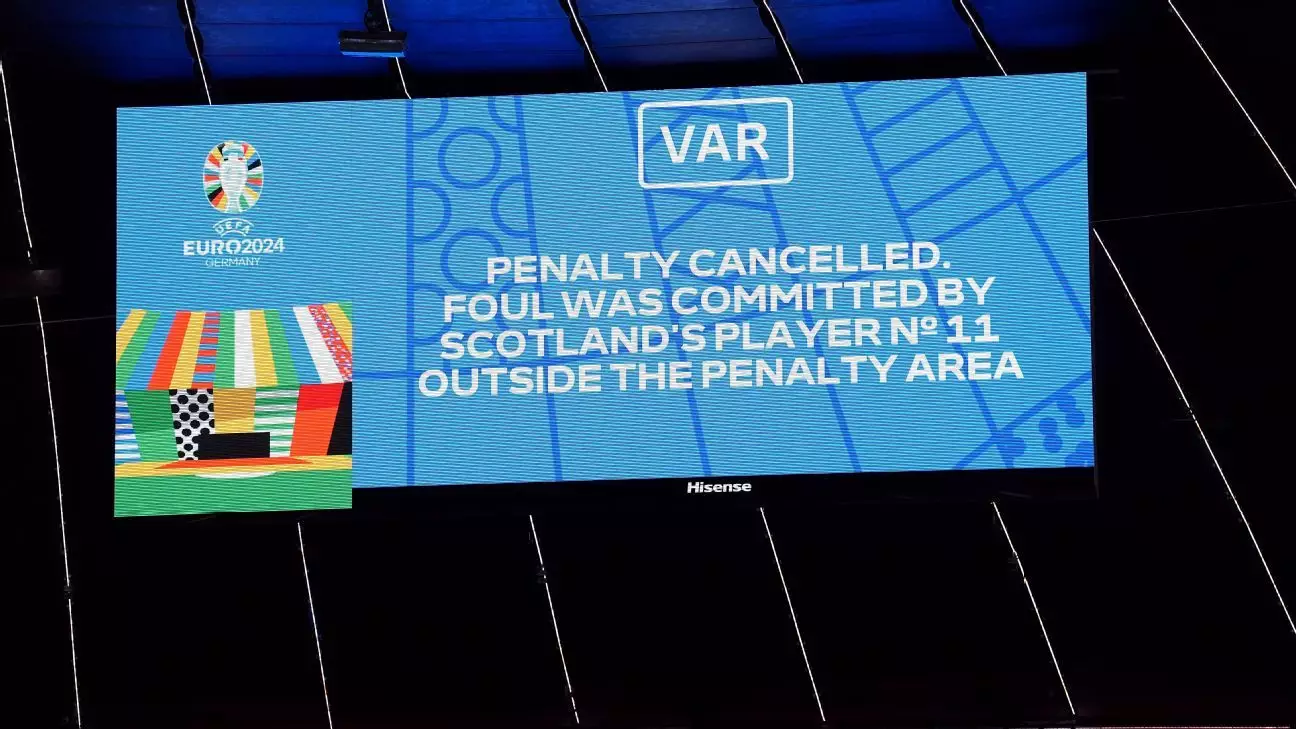In an exciting development for the world of football, the International Football Association Board (IFAB) has initiated expanded trials for Football Video Support (FVS), an innovative alternative to the current Video Assistant Referee (VAR) system. Unlike VAR, which often faces criticism due to its complexity and perceived disruptions to the flow of the game, FVS introduces a more interactive element by allowing coaches the opportunity to challenge decisions made on the field. This shift could signify a change in how matches are officiated, especially in leagues and competitions with limited resources.
FVS was initially trialed during the U20 and U17 FIFA Women’s World Cups earlier this year, following IFAB’s approval in March for testing a system that promises to be a cost-effective solution compared to traditional VAR technology. The motivation behind introducing FVS lies in the desire to enhance the accuracy of in-game decisions without the burden of extensive technological requirements that can often be unfeasible for lower-tier leagues. Pierluigi Collina, the chair of FIFA’s referees’ committee, shared insights on these developments, expressing enthusiasm for wider trials in various competitions.
This pragmatic approach is particularly crucial for leagues that may lack the resources to implement comprehensive VAR setups. Instead of relying on an entire video operation team, FVS allows for limited camera usage while empowering coaches to intervene when they believe a mistake has occurred on the pitch. This innovative mechanism fosters engagement from both players and managerial staff, allowing them to play an integral role in the officiating process.
Under the FVS system, coaches are permitted up to two challenges per match. When a coach questions a decision, the match referee will step aside to review the footage on a screen located near the pitch. This is distinct in contrast to the VAR protocol, where officials receive guidance implying clear and obvious errors without having the chance to reconsider their decisions independently. In FVS, the referee retains full autonomy in assessing the situation, which delivers a refreshing level of accountability and control over their rulings.
One of the critical aspects of FVS is its reliance on a limited camera system; ideally, matches with FVS will be equipped with no more than four cameras. Collina made clear that while FVS aims to improve decision accuracy, it will not provide the same level of detail as VAR. For example, the absence of wall-to-wall camera coverage limits the ability to make complex determinations, such as offside calls—only clear infractions can be viewed. Thus, the on-field judgment remains paramount, emphasizing the referee’s initial call unless a definitive error can be identified through available footage.
While FVS holds promise, its deployment is primarily aimed at leagues that struggle with the implementation of VAR due to technical or financial constraints. As noted, it might find usage in competitions like the Women’s Super League, where diverse stadium conditions complicate traditional VAR functionalities. Various FIFA member associations have already expressed interest in becoming part of the trial, stirring hopes for broader acceptance.
Moreover, alongside the introduction of FVS, other trials focusing on enhancing game flow and officiating have also been discussed. For instance, trials concerning goalkeepers holding onto the ball too long and restricting communication between referees and players to team captains have been brought to the forefront. The upcoming IFAB Annual General Meeting scheduled for March 1 will provide a platform for further deliberations and possible amendments to football laws, which could redefine how the game is played and officiated as early as next July.
The introduction of Football Video Support marks a pivotal moment in the evolution of football officiating. By providing a mechanism for coaches to engage actively in decision-making, FVS aims to streamline the reviewing process while maintaining the integrity of the on-field referee’s judgment. With trials underway and insights from recent competitions guiding the way forward, the future of officiating in football is set to become progressively more responsive and efficient. Though challenges remain, there is optimism that FVS could shape a new chapter in how the beautiful game navigates the balance between technology and human oversight.


Napsat komentář